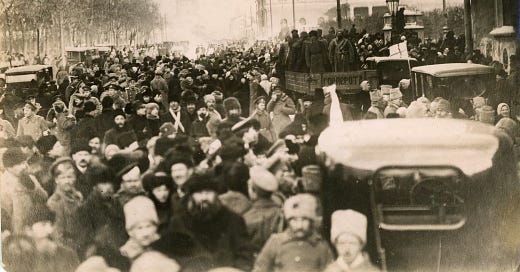Memories: From Moscow to the Black Sea by Teffi
A Daring Memoir of Survival and Uncertainty Amid the Bolshevik Revolution
Caught in the midst of violent turmoil, the prominent humorist writer Teffi recounts her daring and mercurial journey out of Russia, fleeing the dual-sided terror following the Bolshevik Revolution. As internecine warfare erupts across the empire, moral conventions collapse, giving rise to both benevolent saviors and sinister barbarism. Teffi’s storytelling conveys the frantic instability of the time through keen observation, lively characters, and her naturally witty humor.
Tossed about by the “mercy of a whirlwind”, her emigration begins when the ever-resourceful impresario Gooskin conveniently organizes a public reading for her in Kiev, facilitating a timely escape from Moscow. Alongside her friend and fellow writer Arkady Averchenko, she is swiftly swept away from the madness engulfing the city. Yet their stay in Kiev offers no respite from the chaos, as they scramble to Odessa, Novorossiysk, and beyond. The pattern of fear, panic, and imminent danger begins to desensitize her to a point of boredom: “Now we were only too used to it all. Everything had become boring, boring to the point of revulsion. It was all just coarse, dirty, and stupid.”
Exhausted by the omnipresence of terror, Teffi manages to lean on her adaptability and humor to keep her spirits from being cast into a desolate abyss. Through her journey, she’s introduced to a diverse lot of travel companions from good samaritans to ruthless, vengeful survivors. She observes each with intrigue and restrained judgment. Some of her fellow Russians find a semblance of peace amidst the horror, like Serafima Semyonovna, who preserves her feminine identity through a gauze-constructed dress. Meanwhile, abhorrent stories and traumatized victims of both the Red and White armies continue to pile up, creating monsters like Colonel K, who endlessly returns the torture inflicted upon his family. Normalcy and sanity are all but lost in an environment shaped by senseless killing: “For him, what he's doing is entirely normal. You see, after all he's been through, it would be very, very strange if he were to act in a more ordinary way. That really would be insane. There's a limit to what the soul can take, to what human reason can endure.”
Although portraying the lived nightmare of millions, including herself, Teffi tends to drift away from highlighting the grim details and harrowing aspects of the historical period. The memoir occasionally digresses into superfluous accounts and childhood memories that remain too shallow to make an impression on readers. Despite this, her literary prowess allows her to maintain interest throughout before she closes with profound reflections.
In the end, Teffi’s memoir grants personhood to an inhumane, impersonal stain on humanity — a period that remains neglected or forgotten by western audiences. Weaving in and out of a swath of disorder, she lifts the shroud of darkness for readers with hopeful characters and humorous dialogue. Through this work and others, she has cemented her place as a critical voice for the survivors of the Russian Civil War.
Thank you to New York Review of Books for providing the copy for review. You can order a copy here




